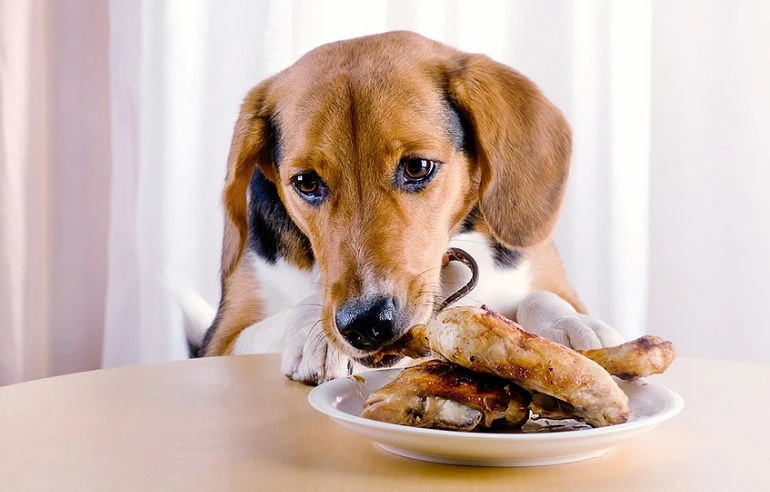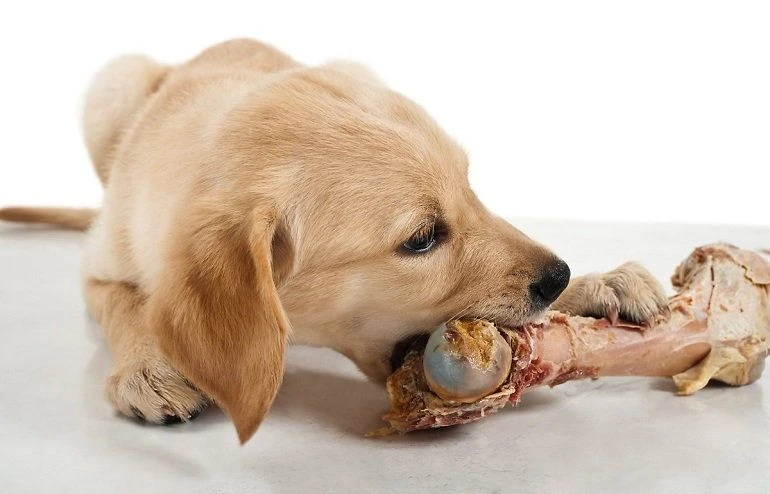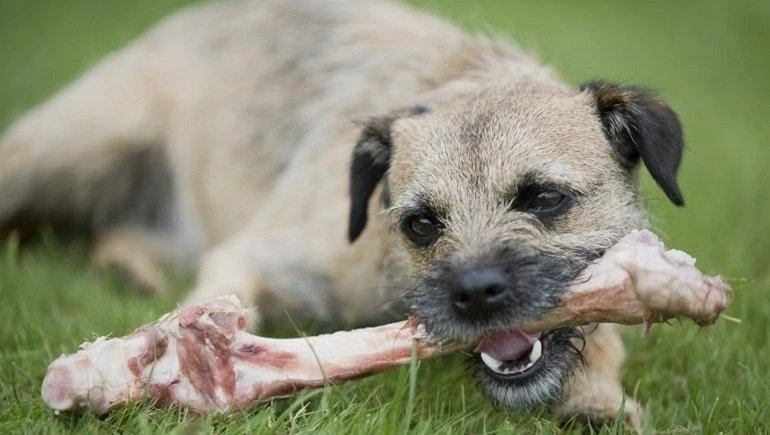Can Dogs Digest Bones?
by Tom Ken
Dogs, like many other canines, have been chewing on bones for thousands of years, so they should not have any trouble digesting them. A dog's digestive system can digest most raw bones from chicken to lamb and beef bones.
However, bones come with the risk of choking the pet if swallowing chunks that are too large without proper chewing. Also, some bones can splinter and injure the dog's mouth, while others can be too hard for their teeth and hence cause dental issues.
That said, once the bones land in the pet's stomach, its digesting system is designed to dissolve them as fast and efficiently as anything else the canine eats.
Which Bones are Safe for Dogs?

Like their wolf ancestors, dogs love bones and have strong jaws to chew almost any bone easily. However, before giving the pet any bones, you need to make sure it is appropriate to prevent health issues and injuries while ensuring it has nutritional/health value.
Factors That Determine How Well a Dog Digest a Bone

1. Bone Size: The bone size determines both the dog's ability to chew it and whether it can digest it. Large bones are fun and more straightforward for the dog to chew, and the pet is also able to break smaller pieces from them without fracturing, which are easier to digest.
2. Bone Type: Bones come in various types. For example, birds have thin and easy to break bones, while cows and goats have more massive ones. The denser ones take more effort to digest than the more delicate bones, but they are also safer for pets.
3. Dog Size and Health: Dog's in excellent shape health wise and the larger ones with stronger jaws that can easily chew the bones to small, easy-to-digest fragments have the easiest time with bones.
4. Dog's Chewing Habits: A dog's tendency to chew food also affects its ability to digest bones. Those that swallow food with little chewing end up galloping large bone chunks that are hard to digest.
Which Bones are Safe for Dogs?
- Beef Bones: Raw beef bones, whether rib or steak bones, are safe for dogs to chew. But, this is only so if they are large enough to avoid choking. Beef bones, and this is more so those that have lots of marrow, provide high nutritional value.
- Lamb Bones: Lamb bones are okay for your canine whether raw or cooked, provided you choose a large enough piece.
Note: Pork bones tend to have adverse health effects for most dogs, whether raw or cooked, so it is better to avoid them. While you can still give your pet raw chicken and turkey bones, extra precautions are required, given they splinter easily.
Safety Tips to Feed Bones to Your Dog

- Always Feed Under Supervision: The most crucial tip when giving your dog bones is always to do it under supervision, so you are there to respond in case of choking or other issues.
- Avoid Cooked Bones: Cooked bones pose a greater risk to the pet as they are quite brittle and more likely to shatter or splinter, putting the dog at significant risk.
- Give Bone After Meal: A simple way to minimize the risk when giving bones is by doing it after a meal, as the canine is less likely to chew and swallow it fast since it is not hungry.
- Give Bones Large than Dog's Muzzle: Bones that are larger than the dog's muzzle are impossible for it to swallow whole. Therefore, they are safer for your pet.
- Minimize Bone Chewing Time: By ensuring the dog chews on the bones for less time (about 10 to 15 minutes), you significantly reduce the injury risk.
- Refrigerate and Dispose of Old Bones: Any bones not being chewed on should always be refrigerated. Remember to throw them out after three days to minimize the risk of contamination and bacteria growth.
Conclusion
Dog's love chewing bones and can spend a lot of time on one and even protect it aggressively. But, while they are good for their teeth and offer significant nutritional value, you need to choose the right ones, such as raw lamb and beef bones and take precautions to ensure its safety as it enjoys the bone.
Sources
- Exercise Caution When Giving Your Dog a Bone - American Kennel Club
 |
 |
 |
 |

About Tom Ken
Tom has worked with many veterinary surgeons as a nurse at different veterinary clinics throughout his life.
There, he provides care for sick animals; such as: dogs, cats, rabbits, birds, hamsters, guinea pigs, and sometimes reptiles.
He has good work ethics and gentle hands; hence, the doctors as well the pet owners have come to love his presence alot.
With this site, he aims to help the readers ensure their pets' wellbeing, learn how to care, and proivide medical treatment as needed.
Joshua received Veterinary Technician Degree at Purdue University in West Lafayette, IN.
Thoughts on "Can Dogs Digest Bones?"
 |
 |
 |
 |
Pet Care Tips
You can Get FREE Gifts. Furthermore, Free Items here. Disable Ad Blocker to receive them all.
Once done, hit anything below
 |
 |
 |
 |